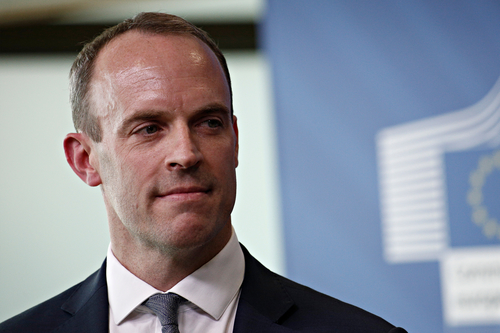City, University of London experts discuss Deputy Prime Minister’s departure following publication of the Tolley Report.
Dominic Raab has announced his resignation as Deputy Prime Minister following claims of bullying from his staff and a report published by Adam Tolley KC. Mr Raab had defended his actions by saying that he “acted professionally at all times”, but has nonetheless taken the decision to step down.
Laura Empson, Professor in the Management of Professional Service Firms at Bayes Business School believes the episode shines a light on the importance of defining professionalism, and drawing the line between bullying and simply setting high expectations of those in his office.
“Modern day professionalism is not simply working around the clock and pushing staff to the limit to achieve exceptional results,” she said.
“The comment also throws up the question of whether or not our politicians are indeed professionals, with research revealing two key elements of what constitutes professionalism.
“The first of these is a level of expertise acquired through extended training and advanced qualifications that gives the bearer the ability to exclude others from the profession and charge a premium for services. The second is ethical standards, and the responsibility to do right by those being served and within the organisation and industry.
“Politicians are generally self-regulating individuals with no commonly understood ethical standard to uphold, nor is the barrier to entry as high as anybody can run for an election. Furthermore, their expertise is usually generalist rather than specialist. Therefore, can they really be defined as professionals?
Dr Lise Butler, Senior Lecturer in Modern History in the Department of International Politics, added that the saga could damage Prime Minister Rishi Sunak’s credibility as well as Raab’s.
“Misconduct and departures through the ‘backdoor’ have blighted the current Government and certainly contributed to its weak polling position,” she said.
“Historically, parliamentary scandals have certainly had an influence on UK elections, and been central to parties’ political messaging. A notorious example is the Profumo Affair in 1963, which contributed to the defeat of the Conservative Party in the 1964 election.
“Parties have built entire election slogans based on promising ethical behaviours to restore faith in elected officials, which cases such as the accusations of bullying by Dominic Raab threatened to undermine.
“In its 1997 General Election manifesto the Labour Party promised to ‘Clean Up Politics’ in the wake of the cash for questions saga of the John Major-led Conservative Government of the time. Similarly, the Conservative Party promised to ‘Clean up Westminster’ in response to the MPs’ expenses scandal of 2009.
“The last few years have been marked by a glut of scandals in this current government, from Covid procurement contracts to Partygate.
“It also undermines his attempts to persuade the public that his government represents a departure from scandals that brought down his predecessor, Boris Johnson.”
All comments should be attributed to Laura Empson, Professor in the Management of Professional Service Firms at Bayes Business School (formerly Cass), and Dr Lise Butler, Senior Lecturer in Modern History in City, University of London’s School of Policy & Global Affairs.



